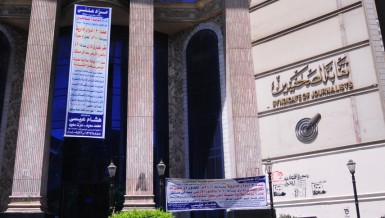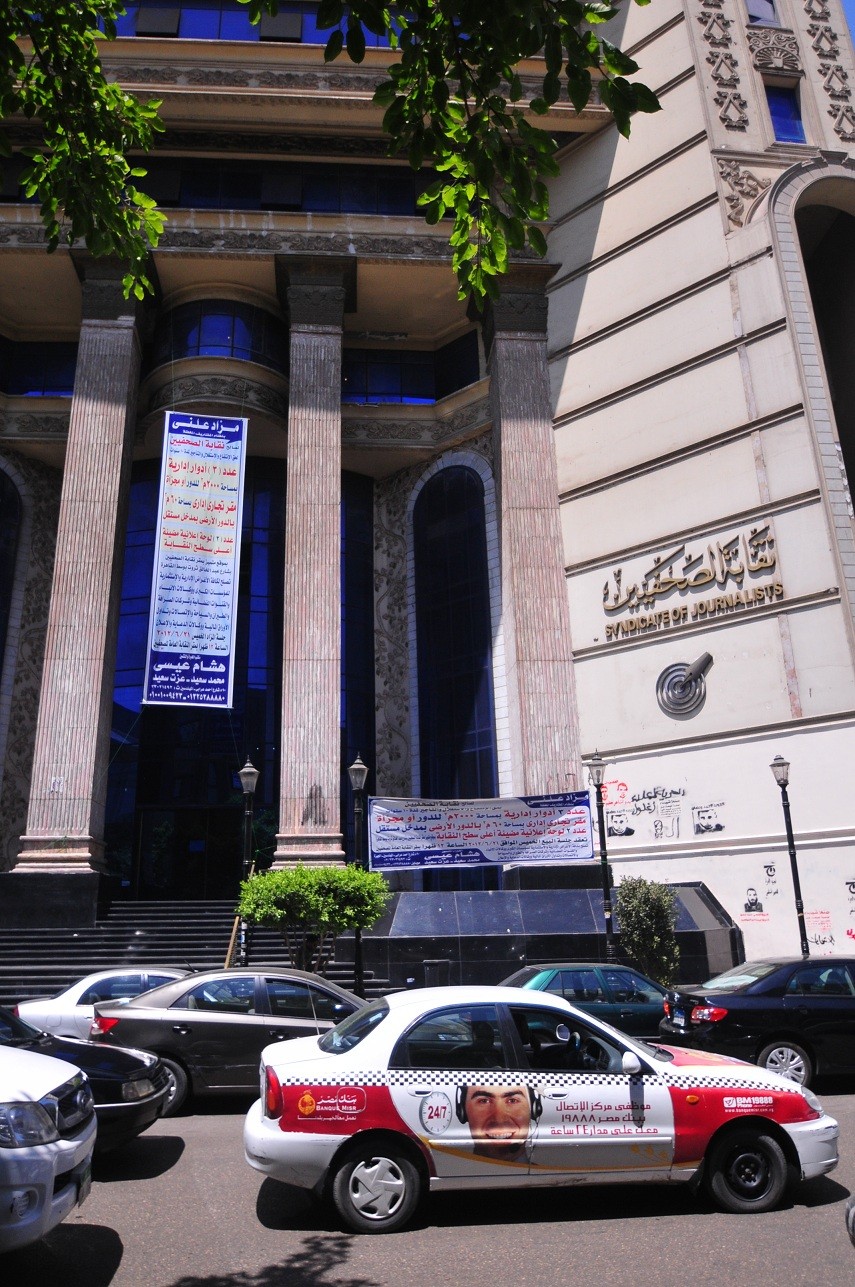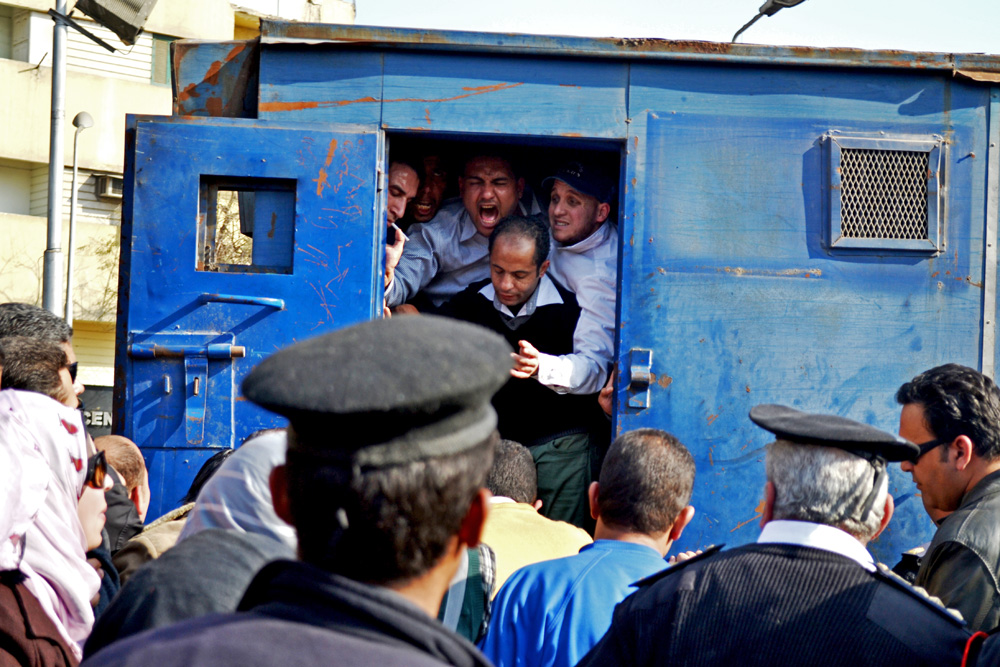
(DNE File Photo)
The modern history of Egyptian journalism witnessed numerous fights for freedom of the press, in which the Press Syndicate played important roles to stand against legal texts allowing imprisonment for publishing crimes.
“Journalists Day” is on 10 June, in commemoration of an important meeting by the public assembly of the Press Syndicate in 1995, and another in 2000, which rejected legal restraints on journalists’ investigations of corruption cases involving public officials, a battle which extended to demands for the annulment of journalists’ imprisonment.
“I believe there should be more attention given to the celebration of that important day,” new head of the Press Syndicate Yehia Qalash told Daily News Egypt Monday.
In 2006, the Press Syndicate was involved in an important legal debate regarding the imprisonment of journalists. On 10 July of that year, a number of private newspapers abstained from publishing, coinciding with a large demonstration in front of the People’s Assembly.
Journalists, led by head of the Press Syndicate at the time Galal Aref, objected to a draft law proposal that the parliament had initially agreed to pass. The parliament was under the control of the ruling National Democratic Party under the regime of Hosni Mubarak.
The draft law abolished journalists’ imprisonment in previous legislations, yet kept an article that maintained prison sentences for journalists if they accused public officials of corruption or questioned their finances. Punishment was up to four years in prison and a fine up to EGP 20,000.
Before that, journalists had engaged in a long battle against Law 93 of 1995 labelled by its opponents as “the assassination of journalism”, which authorised imprisonment for publishing crimes.
It was amended by Law 96 for 1996, providing journalists legal benefits such as cancelling temporary detention, and being arrested or searched without a warrant from general prosecution authorities. The law also stated that journalists could not be punished for stating their opinions, and could not be forced to reveal their sources.
The law guaranteed the independence and freedom of press, recognising its right to free speech and its role in shaping public opinion. Monitoring and censorship were prohibited except if the country declared an emergency state.
Nonetheless, a jail sentence of one year maximum and a fine ranging between EGP 5,000 and 10,000 was set for publishing crimes related to hatred, racism and blasphemy. The law also included that the penalty was applicable to the publishing of ‘accusing’ information about public officials such as prosecution authorities.
Journalists spoke out in the face of oppression under all regimes. Before the 25 January Revolution, newspapers were closed down and journalists were imprisoned for their opinions and any criticism of the Mubarak family.
After the revolution, abuses against reporters and photojournalists increased and many were subject to killings, physical assaults and jail terms. Today, the Press Syndicate has graffiti in commemoration of some of the journalists who died on the job in violent incidents following the revolution.



